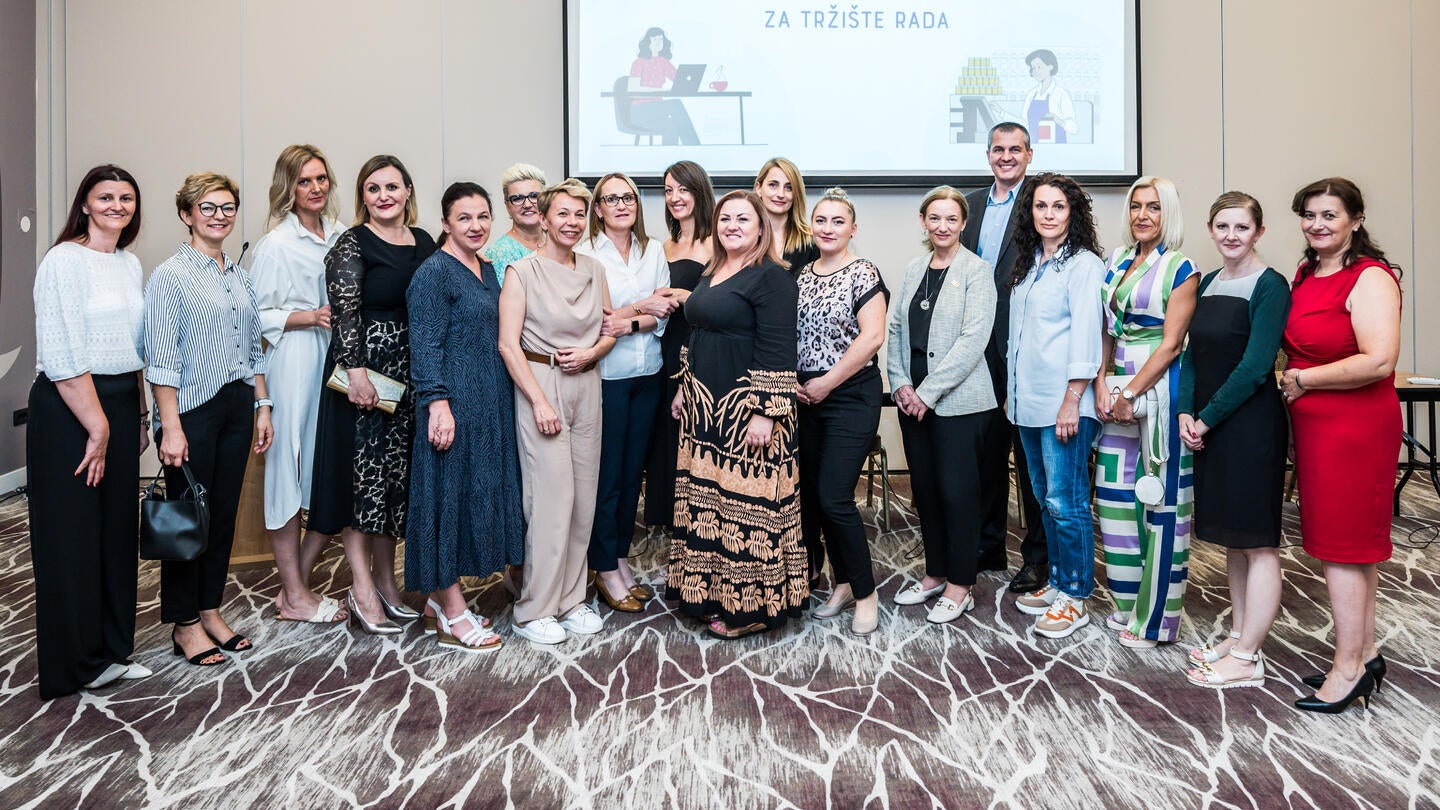A recent women's workforce programme delivered by UNFPA in partnership with the Government of the Czech Republic and private company dm drogerie markt ltd has increased the employability of two groups of women, women over the age of 40, and mothers of preschool children. This initiative equips them with essential skills and opportunities to re-enter the labour market and earn income for themselves and their families.
An evaluation of the programme revealed that about 70% of participants reported a boost in self-confidence. Over half of the participants secured jobs within six months of completing the training, and 68.4% affirmed that the skills learned are transferable to other employment opportunities. Furthermore, some 30% of participants from the previous year have found employment, underscoring the lasting impact of the programme. These successes reflect significant personal growth and challenge societal norms that often sideline capable, albeit less experienced, women.
Amela, 47, shares, "I am married and a mother of two grown children. Despite not securing a job through the employment agency due to lack of required qualifications, it was only after an invitation from UNFPA and dm drogerie markt that I got the opportunity to undertake training, which I gladly accepted. I aim to live a dignified life, earn a minimum pension, and think of my old age."
Almera, 45, states, "I have been registered with the employment agency for 17 and a half years without receiving any employment-related calls. I am hopeful that after completing this training, if I do not stay with this company, I will secure a job elsewhere and at least be able to earn a minimum pension."
The programme has influenced not only job prospects but also broader life decisions and satisfaction levels. After completing the training, 50% of participants expressed a reduced inclination to emigrate from Bosnia and Herzegovina. Considering an earlier household survey by UNFPA showed that every other young person aspires to leave the country, initiatives like this are crucial. They not only strengthen human capital within Bosnia and Herzegovina but also reduce people's aspirations to emigrate, especially important in times when global crises shift focus away from Bosnia and Herzegovina in terms of overseas development aid.
Beyond the programmatic achievements contributing to the socio-economic development of the country, identifying personal changes among participants is essential for their self-confidence, ensuring continued self-development and career advancement.
Sanela, 42, reflects on her journey, "Before joining this programme, I felt invisible in the job market. Now, I have a job that not only values my skills but also gives me a sense of belonging and purpose." Lejla, 39, adds, "The training opened doors for me that I thought were permanently closed. It's not just about the job; it’s about being recognized as a valuable member of society again."
Bosnia and Herzegovina currently faces a critical population challenge, characterized by one of the world's lowest fertility rates at 1.18 and a significant annual population decline. This decline is fueled by high emigration rates and a negative natural change, with the country losing approximately 1.5% of its total population annually. An estimated 25,000 people emigrate each year to more developed countries, seeking better opportunities and putting immense pressure on the nation.
In response, UNFPA has been at the forefront of addressing these demographic challenges through various initiatives. Our programs are not just reactive but proactive, aligning with global population development trends. They focus on initiatives such as upskilling unemployed women, advocating for family-friendly policies, supporting peacebuilding initiatives, and bolstering demographic strategies aimed at reversing these trends.
The initial success of the "On-the-Job Training Programme" is just the beginning. Plans are underway to expand the programme’s reach and scope, in line with recently developed entity population strategies focused on strengthening human capital to ensure sustainable socio-economic development.


